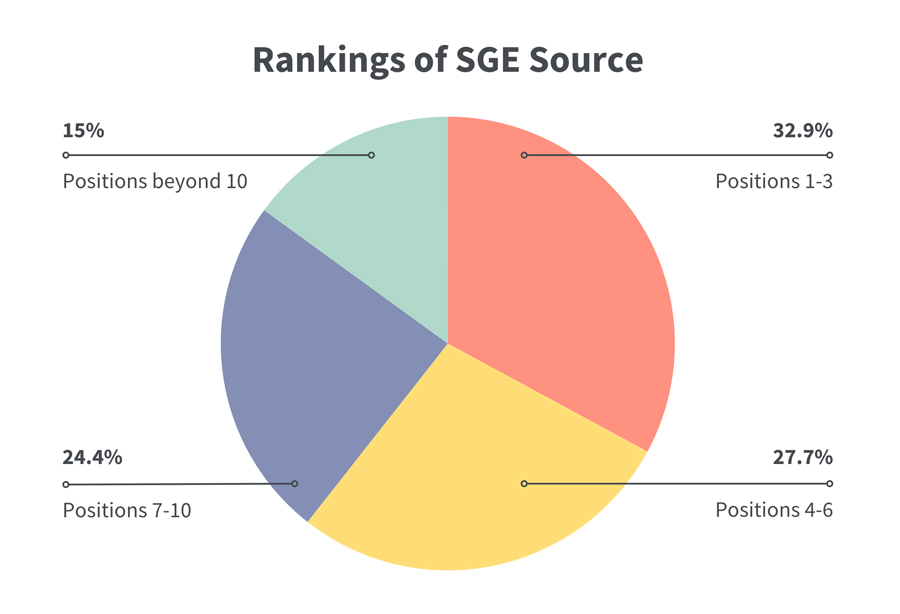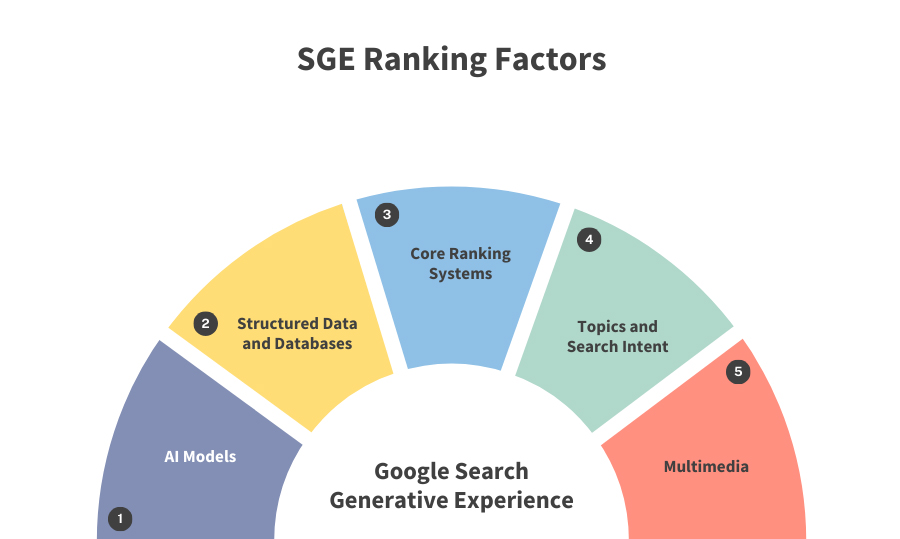Emir is an invaluable member of our team, serving as one of our esteemed Account Managers. With a profound passion for on-page SEO, he possesses an exceptional talent for discovering innovative ways to optimise websites and enhance their rankings. Joining our organisation, Loop, in 2022, Emir brought with him a wealth of expertise gained from his Bachelor’s degree in Marketing Management and Advertising. Currently, he is eagerly pursuing his Master’s degree in International Marketing Strategy, further enhancing his comprehensive understanding of the global marketing landscape. Emir thrives on challenges and continuously seeks fresh opportunities to elevate our clients’ businesses to new heights. Aside from his professional endeavours, Emir has an unwavering passion for culinary arts and loves to cook up a storm. This ardour for cooking exemplifies his drive, creativity, and meticulous attention to detail, qualities that seamlessly translate into his work as a Digital Marketing Executive. His commitment to delivering exceptional results and his genuine enthusiasm for each project make him a trusted and highly sought-after professional. Emir’s profound expertise in on-page SEO, combined with his ambitious pursuit of knowledge and dedication to his clients, make him an invaluable asset to our team. His passion, both in and out of the office, reflects his commitment to excellence, leaving an indelible mark on our clients’ businesses.
Posted on 30/04/2024 by Emir Haskic
What is SGE (Search Generative Experience)?

Search Generative Experience (SGE) marks a groundbreaking advancement introduced by Google, harnessing artificial intelligence (AI) to revolutionise the presentation of search results. SGE marks an important moment in the evolution of search engines, delivering more intuitive, personalised, and dynamic search results for users.
SGE harnesses machine learning algorithms and natural language processing to produce dynamic search results. Rather than merely displaying static links and descriptions on the Search Engine Results Page (SERP), SGE generates a range of content formats, including interactive widgets, videos, images, and more, directly on the search page.

This leading-edge technology is designed to help users with a comprehensive overview of information pertinent to their search query, sourced from multiple channels. This enhancement empowers users to access relevant information and insights without clicking on a specific result.
When will SGE Become A Permanent Feature of Google Search?

Google’s Search Generative Experience (SGE) emerges as a revolutionary feature capable of redefining user interactions with search results. By integrating generative AI into search engine results, SGE presents users with a concise snapshot of information in a visual format directly on the search results page.
Currently in its experimental phase, users in select regions can explore SGE by conducting searches on Google. SGE was launched in the US and was later expanded to Europe, Japan, and India. The feature is now available in more than 120 new countries and territories, including Mexico, Brazil, South Korea, Indonesia, Nigeria, Kenya, and South Africa.
However, there are concerns regarding the quality of the results being displayed, as some users have reported spammy and bad links being included as sources. As Google continues to refine and test SGE, it remains unclear whether this feature will be fully implemented or if it will remain an opt-in or opt-out feature for users. Moreover, there is speculation that SGE may become a paid feature, potentially impacting how businesses approach their online presence and SEO strategies.
Initially slated to conclude in December 2023, Google has recently removed the experiment’s end date from their website, hinting at potential plans for a wider release. Some even speculated that SGE could launch widely at the Google I/O event in May 2024. However, it’s essential to note that there’s no clear indication that SGE will be rolled out as a fully implemented feature. It may be something users can opt in or out of, and there’s talk that it may even become a paid feature.
SGE is expected to change how we find information online by answering many questions directly instead of sending users to other websites. This means businesses that rely on their content to be found online should think about how SGE might affect the number of people visiting their website through search engines.
As Google continues to refine and test SGE, there’s mounting anticipation for its integration as a permanent feature in Google search. With its capacity to furnish direct answers to user queries, SGE stands poised to enhance user engagement with search results, potentially reshaping SEO strategies for businesses.
How SGE differs from traditional SEO practices
Staying ahead of the latest advancements is vital for maintaining a competitive edge in digital marketing. A notable development in this arena is the introduction of Search Generative Experience (SGE), signalling a departure from conventional SEO methods.
Businesses need to understand the fundamental differences between SGE and traditional SEO for businesses to take advantage of the intricate features of SGE and incorporate them with SEO strategies.
| Aspect | Search Generative Experience (SGE) | Traditional SEO |
| User-Centric Approach | Prioritises relevant and personalised search experiences based on user intent, context, and past interactions. | Often focuses on optimising content for search engine algorithms rather than addressing user needs, resulting in a less intuitive browsing experience. |
| Content Relevance and Quality | Emphasises comprehensive, authoritative, and user-centric content that directly addresses user queries. | May place greater emphasis on keyword density and exact match phrases, potentially compromising user satisfaction for improved search engine rankings. |
| Structured Data and Entity Optimisation | Relies on understanding entities (people, places, things, and concepts) and their connections to deliver precise and contextual search results. Requires optimisation of content using structured data markup and ensuring the website reflects relevant entities. | May prioritise technical aspects such as website architecture and meta tags. |
| Personalisation and Contextual Understanding | Provides personalised search experiences by leveraging AI algorithms to discern user preferences, behaviour, and context. Delivers more relevant and tailored search results tailored to individual user requirements. | May not offer the same level of personalisation and contextual understanding, often relying on broader keyword targeting and general optimisation techniques. |
| User Experience and Engagement | Places significant emphasis on enhancing user experience and engagement by providing intuitive and seamless search experiences across devices and platforms. Includes factors such as mobile-friendliness, site speed, and overall usability. | May not accord the same priority to user experience, potentially resulting in websites that are less user-friendly and engaging. |
| Adaptability and Flexibility | Offers adaptability and flexibility in responding to changes in user behaviour, search algorithms, and technological advancements. The AI-driven approach enables continuous learning and evolution. | May exhibit greater rigidity and less adaptability to rapid shifts in the digital landscape. |
What is the Future of SEO with SGE?
As Google continues to refine its search algorithms and integrate SGE principles, businesses will need to focus more on creating high-quality, user-centric content that addresses specific user queries and provides valuable insights. Additionally, SEO strategies will need to adapt to accommodate the nuanced demands of SGE, focusing on factors such as semantic relevance, user experience, and personalised search experiences.
The impacts of SGE on SEO can bring a monumental shift, introducing a new layer of complexity to the ever-evolving digital marketing landscape. Its introduction has ignited discussions and forecasts regarding the potential impact on organic search traffic.
Reports indicate that organic search traffic may undergo a decline of 140% due to the disruptive nature of SGE, prompting businesses and digital marketing professionals to reassess their strategies and adapt to this new paradigm. In addition, 62% of SGE links are sourced from domains that are outside the top 10 organic results from SERP.

The basic question arises – how is SEO changing with SGE? This transformative shift introduces a new paradigm in search engine optimisation, necessitating a re-evaluation of traditional SEO practices.
As we navigate the impacts of SGE on SEO, it becomes evident that strategic planning and proactive adaptation are pivotal to success in this new era. Businesses must remain ahead of the curve by comprehending the implications of SGE on search results and user behaviour.
The Potential Benefits of SGE for Businesses in terms of Visibility and conversion rates
SGE presents various potential advantages for businesses in terms of visibility and conversion rates. For instance, businesses embracing SGE can anticipate an increase in organic traffic, click-through, and enhanced user engagement. Moreover, SGE empowers businesses to deliver more tailored and personalised content to their audience, culminating in heightened conversion rates and increased customer satisfaction.
Based on Google’s internal data, businesses that implement SGE optimisation strategies may witness a surge of up to 30% in organic traffic, alongside a notable enhancement of around 20% in conversion rates.

Although SGE brings numerous benefits for businesses, it also introduces certain challenges. One potential hurdle is the necessity to adjust to evolving search algorithms and user behaviours. Nevertheless, by staying ahead of developments and taking proactive measures, businesses can surmount these challenges and capitalise on the opportunities afforded by SGE to amplify their online visibility and drive conversions.
How to optimise for SGE?

To optimise for Google’s Search Generative Experience (SGE), businesses need to adapt their SEO strategies to align with this new AI-powered search feature. SGE, a technology leveraging generative AI to enhance search results, emphasises relevance, user experience, and engagement. Here’s how you can optimise for SGE:
Focus on Quality and User Value
Create rich, informative content that caters to user needs and remains visible to AI-powered search engines. Provide comprehensive answers to complex questions, use natural language, and develop conversational chatbot experiences through content marketing.
Mobile Optimisation
Ensure that your content is mobile-friendly, as SGE is available on both desktop and mobile platforms. Mobile optimisation is crucial to reach a wider audience and enhance user experience.
Keyword Optimisation
While keywords remain important, focus on using rich, natural, and long-tail keywords that provide detailed insights into user intent. Identify authentic lines of questioning and structure your content to engage users effectively.
Content Clustering
Implement a cluster-content strategy to explore topics and subtopics in detail, catering to diverse user needs for information. Develop content that answers questions in depth and engages users across various topics.
User Engagement and Experience
Elevate user engagement and strengthen your website’s E-E-A-T (Expertise, Experience, Authoritativeness, Trustworthiness), consider diversifying content formats by incorporating text, infographics, and videos. This approach caters to various audience preferences and enhances the expertise of the content. Additionally, focus on reducing page load speed, as faster loading times contribute to a more positive user experience. By offering a variety of content types and ensuring quick load times, you can create an engaging and trustworthy online presence that resonates with your audience.
What Content Does Google’s Search Generative Experience Favour?
Google’s Search Generative Experience (SGE) favours content that is clear, concise, and directly answers user queries. As SGE evolves, businesses and content creators must understand the type of content that SGE favours to optimise their strategies and enhance their visibility in search results.
Types of Content Favoured by Google’s SGE
- Direct Answers: SGE prefers content that provides direct and related answers to user queries. Ensure your content is clear, concise, and structured to address specific questions.
- Long-Tail Queries: Optimise for long-tail queries, which cater to specific user needs and intent. This approach increases the likelihood of your content being featured in SGE results.
- User Intent: Understand user intent and structure your content to address it directly. Use subheadings, bullet points, and other formatting techniques to make your content more accessible and engaging.
- Readability: Enhance readability by using straightforward answers, clear headings, and detailed FAQs. SGE favours brief and direct content, moving away from long-form articles.
- Diversify Content Formats: Expand your content strategy to include various formats like videos, podcasts, and infographics. These formats are used in SGE results and can increase your likelihood of being in the top search results.
Why Business Owners Should Care about SGE?
Staying ahead of the curve is essential for business success. As technology continues to evolve, one area that demands attention from business owners is Search Generative Experience (SGE). While the concept may seem complex at first glance, its implications for businesses are profound, making it imperative for business owners to understand and embrace SGE.
- Online Visibility – SGE transforms how search engines present information, enhancing online visibility by aligning content with SGE principles. This boosts rankings in SERPs, making products and services easier to find.
- Qualified Traffic: Unlike traditional SEO, SGE focuses on attracting qualified traffic by delivering personalised search experiences. This increases the likelihood of converting visitors into customers and improves overall conversion rates.
- Competitive Edge: Embracing SGE sets businesses apart in competitive markets by providing superior search experiences. Staying ahead with emerging technologies ensures a competitive edge in the industry.
- Long-term Success: Investing in SGE lays the foundation for long-term success by future-proofing against digital trends. Insights gained inform strategic decisions for sustained growth and continued relevance.
Partnering with Loop Digital for SGE solutions and strategies lays the groundwork for enduring success by safeguarding against digital shifts. Our expertise provides invaluable insights that drive strategic decisions, ensuring sustained growth and enduring relevance in the dynamic digital landscape.
How to Prepare for the Future of SEO with Search-Generative Experience
While the introduction of SGE may pose challenges for businesses, it also presents new opportunities for innovation and growth. By proactively addressing the challenges posed by SGE and leveraging its capabilities, businesses can position themselves for success in this new digital landscape. Loop Digital’s dedication to employing innovative SEO strategies exemplifies the proactive approach needed to navigate the challenges and opportunities presented by SGE.
Are you ready to future-proof your business and stay ahead of the competition? At Loop Digital, we’re here to assist you in navigating the ever-evolving landscape of SEO with our advanced strategies. Embrace the latest technologies and trends in digital marketing and elevate your online presence with Loop Digital’s tailored SEO solutions. Schedule your exclusive consultation today and commence leading your market.
Looking for your next opportunity?
Digital marketing careers
We’re always on the lookout for talented individuals to join our ever growing team. If you think you’d be a great match for Loop Digital, we’d love to hear from you.

Join 300+ business owners getting weekly growth strategies - subscribe now.
"*" indicates required fields






